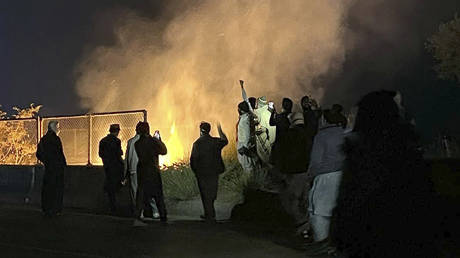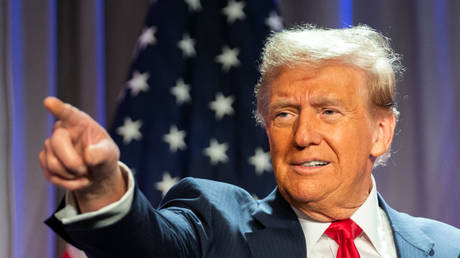
That’s more than a billion dollars injected into the W. An impressive haul for a league pushing 30 and still not turning a profit. Surely, a press release is being crafted for record sponsorship revenue in 2025. With Engelbert at the helm, the WNBA has experienced its greatest glow up.
Still, her allies seem harder to find than salad at a barbecue.
Perhaps even more important than the public dissent from players, the owners — who tend to care more about revenue than anything — aren’t lining up in unison behind the scenes. Minnesota Lynx star Napheesa Collier earlier this week, called the WNBA’s leadership the “worst in the world” and charred Engelbert’s reputation by painting her as uncaring about the players and demanding more praise for the league’s growth. Collier’s scathing comments have been met by resounding support and other tales of Engelbert’s failures at conveying the players’ value.
Because Engelbert reports to NBA commissioner Adam Silver, multiple NBA sources were queried by The Athletic about Engelbert and, privately, some wonder if Collier set in motion a wave that leads to a new executive face. WNBA and NBA sources, speaking on the condition of anonymity because they were not authorized to speak publicly, said they think this might accelerate a change that was already coming. Some agree with the sentiment made public by Collier and supported by her fellow stars. And at least a few of the owners who also have NBA franchises are among those who would not mind a new commissioner who, they believe, could make the league flourish even more.
In a prepared statement during her team exit interview, Minnesota Lynx star Napheesa Collier called out WNBA leadership. pic.twitter.com/m4ok1VadN5
— The Athletic (@TheAthletic) September 30, 2025
It’s not a small thing for ownership not to back their representative. That’s what a commissioner is primarily: a spokesperson for the owners, an ambassador of their league. With tense negotiations for a new collective bargaining agreement playing out ahead of the WNBA Finals and a looming Oct. 31 deadline, the discourse is expected to continue contentiously. That Engelbert is on this public plank is hardly a vote of confidence.
Players clashing with the owners and aiming that enmity at the commissioner is typical in pro sports. America’s most profitable league, the NFL, is fronted by a commissioner in Roger Goodell who regularly finds himself targeted by player and public criticism. It’s part of the job to be their shield, absorb the ire. Goodell survives. Because, no matter how sharp the discourse, the money flows.
But that the WNBA’s financial growth isn’t currying more favor for Engelbert is a sign this is much more than just typical player-owner tension. What Collier has exposed is that, in her six years as commissioner, Engelbert hasn’t amassed significant favor from either side of the proverbial aisle. The rampant support shown to the Lynx star after her comments highlighted Engelbert’s shortcomings. It’s not just players who experience it, either.
Chief among the complaints, according to multiple sources, are her people skills. She is not the easiest commissioner to reach. As the head of a socially active, politically engaged league, Engelbert isn’t an ideal communicator, especially as it pertains to sensitive topics and moments.
Engelbert doesn’t win the room. She doesn’t move the masses. That’s always been true. She can be tone deaf and underwhelming when explaining issues. Part of a commissioner’s value is in their charisma, how their particular genius inspires confidence. It stands to reason a contingent used to seeing Silver work wouldn’t be motivated to rally behind Engelbert.
This is a question of capacity. The WNBA has entered unprecedented territory, with prominence and possibilities it has never known. This juncture is pivotal, and Engelbert’s declining approval ratings imply that what the league needs moving forward is something different. The commissioner of a thriving league simply needs to be able to do all of it — speak to fans, serve this unique ownership group, relate to its players, manage controversy and operate with an eye of the future.
“We need great leadership at this time across all levels,” Indiana Fever star Caitlin Clark said in her press conference Thursday. “This is straight up the most important moment in this league’s history, and this league’s been around for 25-plus years. This is a moment we have to capitalize on. So, that’s honestly what I would say. Phee said it all with what she said, and I think the points she made were very valid.”
Perhaps it was always headed this way. Some held the belief Engelbert was on her way out anyway. And Collier, ever so calmly, just provided the finishing touches with a blowtorch and caramelized the commissioner’s reputation.
Or, maybe, Collier created this window of evaluation. Maybe her press conference — a meticulously executed move on behalf of the players’ union to put public pressure on the league — was a magnifying glass, forcing a closer look into Engelbert’s worthiness for the moment and this movement.
Whatever the case, the WNBA commissioner is under siege. For too much of her constituency, her leadership finds her wanting. What happens next is up to Silver, multiple sources said.
Silver doesn’t come out of this spotless. He’s the invisible hand over it all. Engelbert reports to him, so at least some criticism of Engelbert should belong to him. The acumen and innovation Silver is known for in the NBA, and certainly his suave and cachet, scarcely make it to the WNBA side.
Forty-two percent of the league is owned by the NBA, another 42 percent by the WNBA, and the remaining 16 percent by the group that invested in a capital campaign. Some of the NBA owners are in all three pots, making the NBA the unofficial primary owners. Which begs the question: Does Silver want a strong WNBA commissioner? He appointed Engelbert, endowed her with the title and its clout. Whoever is at the helm for this next CBA will largely depend on what Silver deems suitable.
Better believe the NBA owners — who will control 10 WNBA teams when the expansion squads are added — aren’t working through Engelbert unless it’s necessary. Silver is their guy.
What must be measured and decided now is if someone else should be in the big chair moving forward. And who would that person be? The job of WNBA commissioner is only growing in significance. The flambé by Phee blatantly challenged the viability of Engelbert to guide the WNBA where it’s headed.
It deserves mentioning how Englebert took over during tumultuous times. The league was floundering financially, then a pandemic happened. Her reputed coldness and business expertise were appropriate. Hyper-focusing on revenue was necessary.
The league has since changed dramatically, supercharged by the addition of college juggernauts Clark and Angel Reese, and the magnetism of rising superstars such as A’ja Wilson and Collier. The exponentiated interest lured billionaires into the ownership group and figures to attract even more in the future. The context of the league has changed swiftly. Primarily, those across the table from the owners have undeniable clout. The kindest analysis: Engelbert hasn’t adapted quickly enough.
With CBA negotiations pending, and a stoppage being a third-rail option for both sides, it’s probably too much to replace Engelbert now. But presuming a deal is reached, the need for a better relationship with players will remain paramount. Same for the relationship with the WNBA’s wide swath of owners.
This gig increasingly commands ingenuity and touch. A pronounced brilliance to sway often conflicting entities. A smooth operator with an iron fist. A convincing rhetorician and culturally competent spokesperson.
The growing sentiment seems to be that Engelbert doesn’t possess the savvy that’s necessary for such an assignment. For some significant figures — from the player, general manager and ownership ranks — the rising franchise valuations, media rights deals and growing sponsorship revenue under Engelbert either isn’t extraordinary enough to compensate for her shortcomings or not attributable enough to Engelbert to deem her irreplaceable.
In other words, she might be cooked.
This article originally appeared in The Athletic.
Minnesota Lynx, New York Liberty, Seattle Storm, Los Angeles Sparks, Washington Mystics, Atlanta Dream, Chicago Sky, Connecticut Sun, Indiana Fever, Dallas Wings, Las Vegas Aces, Phoenix Mercury, Golden State Valkyries, WNBA, Opinion
2025 The Athletic Media Company





